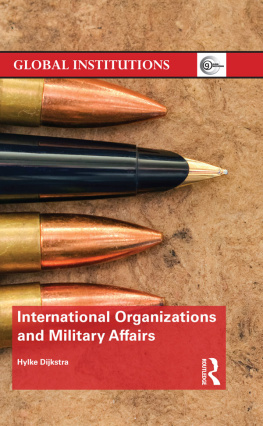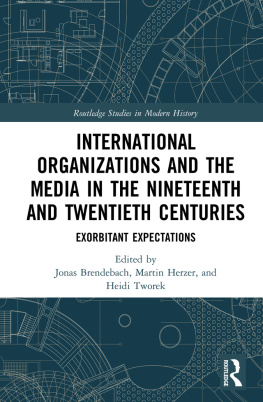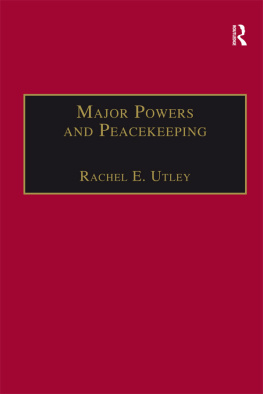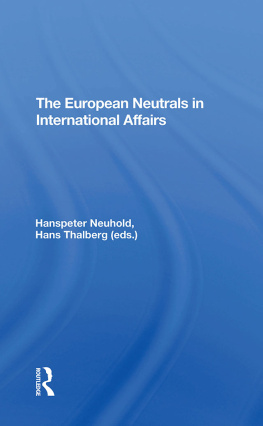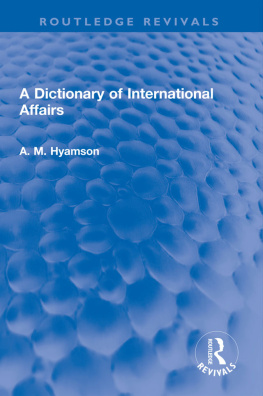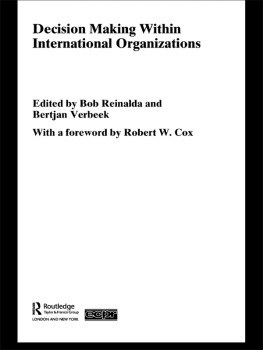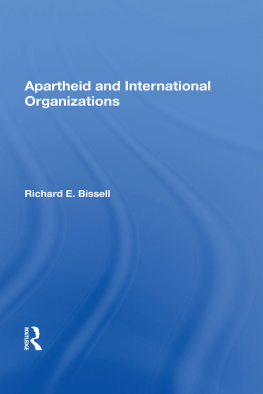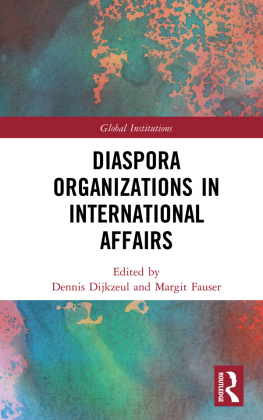International Organizations and Military Affairs
From the UN Department of Peacekeeping Operations to the NATO International Staff and the European External Action Service, international bureaucrats make decisions that affect life and death. In carrying out their functions, these officials not only facilitate the work of the member states, but also pursue their own distinct agendas. This book analyzes how states seek to control secretariats when it comes to military operations by international organizations. It introduces an innovative theoretical framework that identifies different types of control mechanisms.
The book presents six empirical chapters on the UN, NATO, and EU secretariats. It provides new data from a unique dataset and in-depth interviews. It shows that member states employ a wide range of control mechanisms to reduce the potential loss of influence. They frequently forfeit the gains of delegation to avoid becoming dependent on the work of secretariats. Yet while states invest heavily in control, this book also argues that they cannot benefit from the services of secretariats and keep full control over outcomes in international organizations. In their delegation and control decisions, states face trade-offs and have to weigh different cost categories: the costs of policy, administrative capacity, and agency loss.
This book will be of interest to scholars, postgraduates, and officials in international organizations and national governments dealing with questions of international political economy, security studies, and military affairs.
Hylke Dijkstra is an Assistant Professor with tenure at the Department of Political Science of Maastricht University, The Netherlands. He was previously a Marie Curie fellow at the Department of Politics and International Relations of the University of Oxford, UK, where he was also affiliated to Nuffield College. He has widely published on the EU, NATO, and UN.
Global Institutions
Edited by Thomas G. Weiss
The CUNY Graduate Center, New York, USA and Rorden Wilkinson
University of Sussex, Brighton, UK
About the series
The Global Institutions Series provides cutting-edge books about many aspects of what we know as global governance. It emerges from our shared frustrations with the state of available knowledgeelectronic and print-wise, for research and teachingin the area. The series is designed as a resource for those interested in exploring issues of international organization and global governance. And since the first volumes appeared in 2005, we have taken significant strides toward filling conceptual gaps.
The series consists of three related streams distinguished by their blue, red, and green covers. The blue volumes, comprising the majority of the books in the series, provide user-friendly and short (usually no more than 50,000 words) but authoritative guides to major global and regional organizations, as well as key issues in the global governance of security, the environment, human rights, poverty, and humanitarian action among others. The books with red covers are designed to present original research and serve as extended and more specialized treatments of issues pertinent for advancing understanding about global governance. And the volumes with green coversthe most recent departure in the seriesare comprehensive and accessible accounts of the major theoretical approaches to global governance and international organization.
The books in each of the streams are written by experts in the field, ranging from the most senior and respected authors to first-rate scholars at the beginning of their careers. In combination, the three com-ponents of the seriesblue, red, and greenserve as key resources for faculty, students, and practitioners alike. The works in the blue and green streams have value as core and complementary readings in courses on, among other things, international organization, global governance, international law, international relations, and international political economy; the red volumes allow further reflection and investigation in these and related areas.
The books in the series also provide a segue to the foundation volume that offers the most comprehensive textbook treatment available dealing with all the major issues, approaches, institutions, and actors in contemporary global governanceour edited work Interna-tional Organization and Global Governance (2014)a volume to which many of the authors in the series have contributed essays.
Understanding global governancepast, present, and futureis far from a finished journey. The books in this series nonetheless represent significant steps toward a better way of conceiving contemporary problems and issues as well as, hopefully, doing something to improve world order. We value the feedback from our readers and their role in helping shape the on-going development of the series.
A complete list of titles appears at the end of this book. The most recent titles in the series are:
The International Committee of the Red Cross (2nd edition, 2016)
by David P. Forsythe and Barbara Ann J. Rieffer-Flanagan
The Arctic Council (2016)
by Douglas C. Nord
Human Development and Global Institutions (2016)
by Richard Ponzio and Arunabha Ghosh
NGOs and Global Trade (2016)
by Erin Hannah
Brazil as a Rising Power (2016)
edited by Kai Michael Kenkel and Philip Cunliffe
The United Nations as a Knowledge System (2015)
by Nanette Archer Svenson
Summits and Regional Governance (2015)
edited by Gordon Mace, Jean-Philippe Thrien, Diana Tussie, and Olivier Dabne
First published 2016
by Routledge
2 Park Square, Milton Park, Abingdon, Oxon OX14 4RN
and by Routledge
711 Third Avenue, New York, NY 10017
Routledge is an imprint of the Taylor & Francis Group, an informa business
2016 Hylke Dijkstra
The right of Hylke Dijkstra to be identified as author of this work has been asserted by him in accordance with sections 77 and 78 of the Copyright, Designs and Patents Act 1988.
All rights reserved. No part of this book may be reprinted or reproduced or utilised in any form or by any electronic, mechanical, or other means, now known or hereafter invented, including photocopying and recording, or in any information storage or retrieval system, without permission in writing from the publishers.
Trademark notice: Product or corporate names may be trademarks or registered trademarks, and are used only for identification and explanation without intent to infringe.
British Library Cataloguing in Publication Data
A catalogue record for this book is available from the British Library
Library of Congress Cataloging in Publication Data
A catalog record for this book has been requested
ISBN: 978-1-138-19588-2 (hbk)
ISBN: 978-1-31563-810-2 (ebk)
Sometime toward the end of my doctoral research, I recognized the potential of studying the role of international secretariats from a comparative perspective in the field of security. Coming from an European Studies background, I had been raised with the idea that the European Union (EU) is less than a federation [but] more than a regime. The sui generis character and the n=1 study of European integration has always made academics slightly uncomfortable. While I think that the EU remains special in many areas, in military affairs it is not. Various international organizations deploy troops across the world and they face similar coordination challenges. Several of them also have sizable secretariats. After my work on the centralization of the EUs Common Security and Defence Policy, I considered it a good idea to expand my empirical scope and compare my findings to similar developments in other international organizations.


